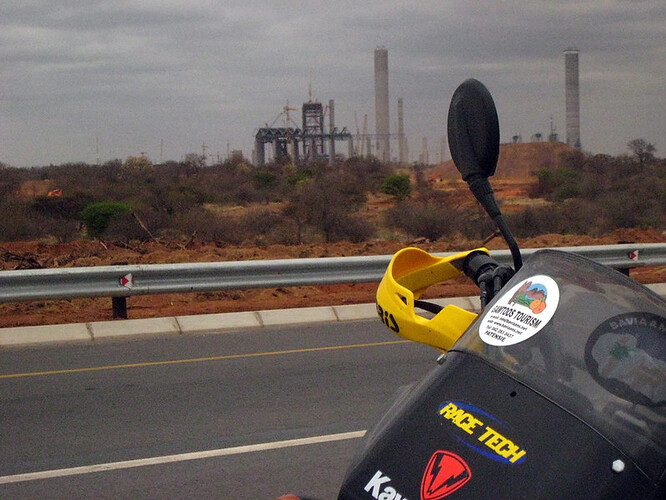I was having this conversation just yesterday. Everyone is questioning whether the man in question is a good manager, and I think that is the wrong question. I think that if you want to rescue a business, he very much is the guy to call, and here is why…
When you need to rescue a business, you do it in much the same way as saving a sick tree. First you trim that tree down to something that’s easier to save, cut away the deadwood, even some good branches if you have to, the idea being to have a better branches to roots ratio (income vs expenses). Then you start building up the tree again.
This is precisely what De Ruiter did at Nampak. People are full of criticism about what happened to the share price of that company while he was there… they forget that Nampak was in serious serious trouble (because the oil price took a dive and big investments in Angola and Nigeria became big problems). What he did was precisely that, reduce the size of the organism to something that can be saved… and then save it.
But this cannot really be done at Eskom can it? Well, to some extent it can. You can trim down on the workforce a little, you can push the maintenance harder, you can tell your customers that supply is going to be constrained for years while you fix it (which he did), you can split the company into smaller parts (which he is also pushing), he is, as you say, doing exactly what the logical rational person would do to save a business. And in that respect I cannot understand why a logical rational person would think he needs to go… (unless said logical rational person knows nothing about running a business of course, which is more often than not the case).
But with all that said… this only works if said person 1) has the room to do those things, and 2) is allowed by their board/masters/whatever to do it.
I also think back to my “philosophy class” back in 2002. You see, I took this one class and now I know everything… just kidding. In philosophy of science, there was a dude called Imre Lakatos who had this theory about revolutions in science. You have a reigning theory (eg Aristotle’s idea of perfect circles and Ptolemy’s math that explains the movement of the planets). In time, you find more and more things that the theory doesn’t neatly explain, and the theory (or those who hold it) form a belt of protective “exceptions”, known cases where a little fudging is required. In time the exceptions starts to overwhelm the theory, a revolution takes place and a new theory (eg. Copernicus’s heliocentric model*) takes its place, and then the process repeats.
I think the same thing must happen in politics, and in worldviews (Weltanschauung in the German). The ANC has a certain way that they see the world working (very much informed by their struggle-time upbringing, in other words, a lot of soviet communism made its way in there), and now they find there are things that don’t precisely work in that world. The result is the forming of a protective belt of tweaks whereby the seek to run the business under their own worldview while increasingly the pressure is mounting to replace it with a new model. Inevitably, a revolution must take place at some point.
- A note about the whole Copernicus/Galileo saga. The typical story about this, also pushed by De Grasse Tyson and Sagan, is that “the church” were the stick in the mud, the ones sticking with the old theory. The reality is that it was the universities more than anyone else. The existing system, which goes back to Aristotle and Ptolemy, had been in place for many years… the story is way more messy than people tend to remember.
